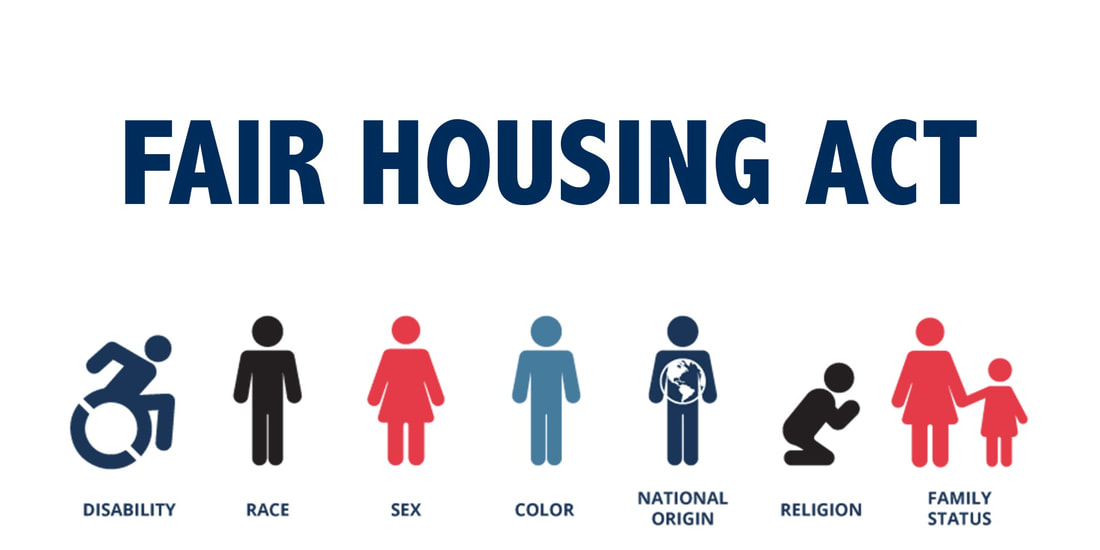
Landlord discrimination is a serious matter in rental housing. Fair and equal treatment of all applicants isn’t just good practice — it’s the law. Discrimination during the tenant screening process can lead to costly legal action, reputational damage, and significant business disruption.
As one of the top property management companies in Seattle, GPS Renting is committed to helping landlords follow legal standards and build trustworthy, inclusive rental communities. This guide outlines what rental discrimination looks like, who is protected, and what landlords must avoid to stay compliant with fair housing laws.
Key Takeaway
Rental housing discrimination is illegal and can result in lawsuits, fines, and reputational damage.
The Fair Housing Act protects individuals based on race, color, national origin, religion, sex, disability, and familial status.
Landlords must avoid discriminatory practices in advertising, screening, and leasing—regardless of intent.
Standardizing your application and screening process is critical to staying compliant and reducing legal risk.
Discrimination can occur even unintentionally, so documentation and consistent procedures are essential.
Tenant discrimination insurance can offer an extra layer of protection for landlords and property managers.
Partnering with an experienced property management company like GPS Renting ensures you stay compliant with federal and state laws.
What Is Rental Housing Discrimination?
Rental housing discrimination occurs when a landlord treats potential or current tenants unfairly based on personal characteristics rather than objective criteria. It’s especially problematic during the screening process and when making leasing decisions.
Whether intentional or not, violating fair housing regulations can result in legal liability and loss of income. Understanding these laws is critical to responsible property management.
Overview of the Fair Housing Act
The Fair Housing Act, passed in 1968, was established to eliminate discrimination in housing-related activities, including renting, buying, and securing housing assistance. It ensures that everyone has equal opportunity in housing, regardless of their background or identity.
Protected Classes Under the Fair Housing Act:
Race
Color
National origin
Religion
Sex (including gender identity and sexual orientation)
Familial status
Disability
State and local laws, such as those in Washington, may also add protections based on age, marital status, military status, and use of housing vouchers (such as Section 8).
What Types of Housing Are Covered?
The Fair Housing Act applies to most types of housing. Exceptions include:
Owner-occupied buildings with four or fewer units
Single-family homes sold or rented without an agent
Housing run by religious or private clubs limited to members
Common Examples of Rental Discrimination
Understanding how discrimination can occur will help you prevent it. Here are a few examples:
1. Racial or Ethnic Preference
Refusing to rent or making remarks about race, color, or national origin in advertisements or conversations can be seen as discriminatory.
2. Gender-Based Criteria
Unless renting a room in your owner-occupied home, you cannot express a preference for male or female tenants.
3. Familial Status
Statements like “not suitable for children” or “ideal for singles” could be seen as excluding families.
4. Disability Discrimination
Refusing reasonable accommodations or failing to make the property accessible may violate fair housing laws.
5. Age Discrimination
Avoid imposing age restrictions (e.g., “ideal for young professionals”) unless you’re managing qualified senior housing.
6. Section 8 Discrimination
Rejecting a tenant solely because they use housing assistance is prohibited in many jurisdictions, including Washington State.
What You Should NOT Do When Screening Tenants
To avoid unintentionally breaking discrimination laws, landlords should steer clear of the following practices:
❌ Specifying the “Ideal” Tenant in Listings
Avoid phrases like:
“Perfect for young couples”
“No kids allowed”
“Not wheelchair accessible”
Focus instead on the property’s features — not who you believe should live there.
❌ Unequal Screening Processes
Every applicant should go through the same screening process. Consistency ensures fairness and legal protection.
❌ Lying About Unit Availability
You cannot falsely claim a unit is no longer available to avoid renting to someone from a protected class.
❌ Harassment or Excessive Questioning
Avoid invasive questions about a tenant’s religion, nationality, marital status, or any other protected category. Keep communications professional and document everything.
❌ Steering Applicants
Don’t suggest or limit rental options based on someone’s background. For instance, recommending certain neighborhoods only to specific racial or age groups is discriminatory.
❌ Denying Reasonable Accommodation Requests
If a tenant with a disability asks for modifications (e.g., grab bars in the bathroom), you may need to allow or provide them. Always check if you are legally responsible or if the cost can be covered by the tenant.
How Tenant Discrimination Insurance Helps
Even well-meaning landlords can face discrimination claims. Tenant discrimination insurance helps protect your rental business by covering legal costs associated with such claims. It’s an added safeguard that can offer peace of mind when navigating complex legal territory.
How GPS Renting Helps You Stay Compliant

At GPS Renting, we take fair housing compliance seriously. Our standardized rental applications, consistent tenant screening procedures, and professional management practices are designed to:
Reduce the risk of discrimination claims
Protect your investment from costly legal battles
Ensure that your rental business operates fairly and ethically
Whether you’re a first-time landlord or managing a large portfolio, our Seattle-based property management team provides expert support to help you navigate Washington’s housing laws with confidence.
Final Tips for Avoiding Discrimination
✅ Use a uniform rental application for every applicant
✅ Maintain clear written records of all interactions
✅ Stick to objective criteria like credit, income, and rental history
✅ Avoid discussing anything related to protected classes
✅ Consult legal experts or your property management team for gray areas
Partner with a Trusted Property Management Company in Seattle
Avoid costly mistakes and protect your rental business by partnering with GPS Renting, a leading name in Seattle property management. We’re here to ensure your rental process is legal, fair, and efficient — so you can focus on growing your investment.
📧 care@gpsrenting.com
📞 425-217-8661
🌐 www.gpsrenting.com
